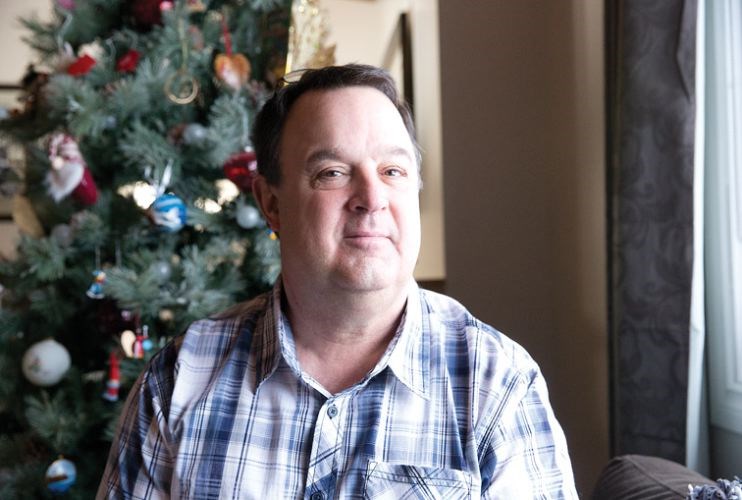Mike Allan is still not sure why he was the only survivor.
The Prince George resident had been diagnosed with melanoma, a form of skin cancer. A clinical trial in Alberta involving the drug Yervoy/ipilimumab proved unsuccessful. In 2011, after taking part in a second clinical trial involving another drug, a BRAF inhibitor, he started to recover.
He was the only survivor out of 400 in the second trial. His oncologist credited his survival to the unique combination of the two treatments. But now Allan worries that access to the Yervoy/ipilimumab drug is being put in jeopardy.
"When Yervoy came out and it was (clinically) trial-ed in patients, it worked so well that people were now lasting a lot longer than ever before," Allan said.
"When you have cancer, that's what you want. There's nothing that's super successful, but the treatments buy you time while other treatments are being (clinically) trial-ed. So you just hope for that time."
Allan believes that there is a possibility that his melanoma might return. He feels that the Yervoy/ipilimumab treatment would be his best option. But, he said, obtaining funding for this drug in B.C. has become next to impossible since 2016. The cost for this drug can be prohibitively expensive. According to the Pan-Canadian Drug Oncology Review website, the list price for a 200 mg vial of the drug is $23,200.
Kathy Barnard, founder of the Save Your Skin Foundation, an advocacy organization focused upon melanoma treatment, said that prior to 2016, Yervoy/ipilimumab was one of many funded treatment options for Canadians suffering from the disease.
Barnard, who survived a battle with melanoma herself, said the drug was severely defunded in 2016 in part because of the creation of a new body by provincial cancer agencies, the Canadian Drug Implementation Advisory Committee.
"The decision that the provinces made didn't line up with the decision that we had seen the other governing bodies make. It was all quite strange to the physicians because it really tied their hands," Barnard said. "We've had patients that have raised money to buy their own drugs. That's just crazy."
CDIAC is composed of members of several Canadian cancer-related agencies, including the B.C. Cancer Agency.
Helen Anderson, a member of the CDIAC and an oncologist based in Victoria, disagrees that Yervoy/ipilimumab has been defunded.
"Yervoy is funded and continues to be funded for the treatment of metastatic melanoma," Anderson said. "It certainly was not defunded in B.C."
Anderson said that since 2016, other drug treatments, Nivolumab and Pembrolizumab, have since become more widely favoured.
"Other drugs became available that had better activity and less side affects than ipilimubab. So many of the treating physicians and patients chose to have those other drugs rather than ipilimubab. But it is still an option," Anderson said.
Malcolm Moore, chair of CDIAC, said that funding decisions related to drug treatment are solely made by provincial and federal health agencies. He said that CDIAC was initially established as a coordinating body for cancer agencies in Canada.
"Drugs typically in Canada, because they're paid for by the individual provinces, we wanted to develop more consistency around provincial decisions," Moore said.
Moore said that the organization provides advice related to best practices involving cancer treatment. This includes combinations of drug therapies.
Barnard said the funding for Yervoy/ipilimumab combination therapy with other treatments is not listed on the Pan-Canadian Drug Oncology Review website.
She said that information about the reasoning behind funding decisions from CDIAC has been difficult to obtain.
"CDIAC and the CAPCA have been very non-transparent," Barnard said.



